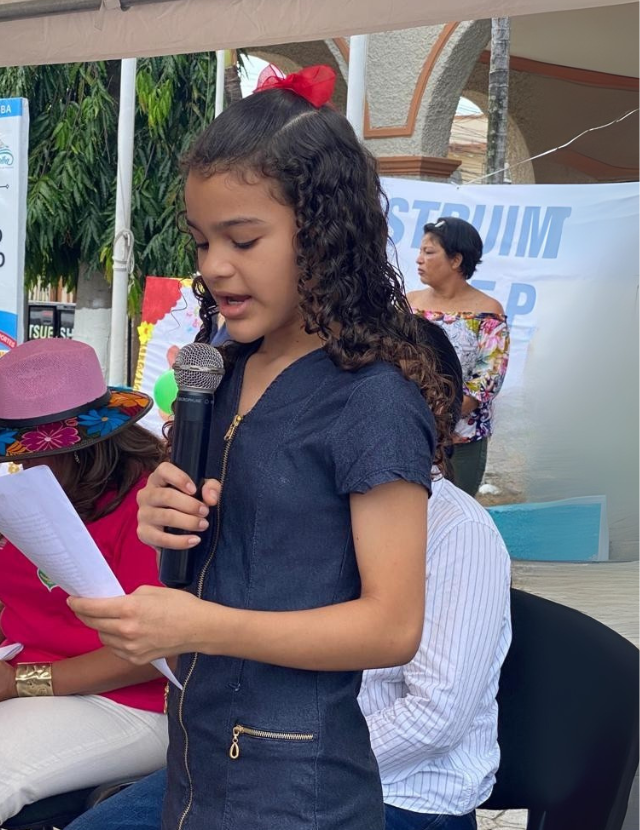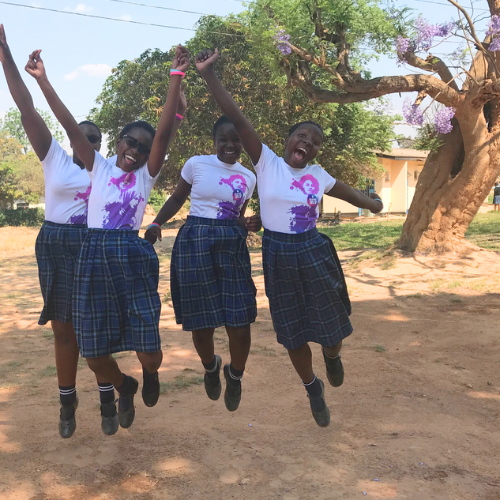Empowering Girls Across Cultures and Communities Through Rise Up’s Girls’ Voices Curriculum
Program
-
Focus Areas
Capacity Building & Leadership, Women, Youth & Children -
Expertise
Leadership Development

Girls have the power to change the world. When girls advocate for one another, they create a ripple effect of empowerment that makes our world a better place for everyone. The Girls’ Voices Curriculum emerged from PHI’s Rise Up’s 2015 partnership with the Nike Foundation, when Rise Up worked with girls in Guatemala, Ethiopia, Uganda, and Malawi during a pivotal moment in global development. As the United Nations’ Sustainable Development Goals were being drafted, the mission was clear: ensure girls’ voices stood at the center of the new UN global agenda.
In 2025, academic research confirmed that Rise Up’s Girls’ Voices Curriculum empowered girls across cultures and communities. This curriculum, developed and released in partnership with Girl Up, continues to serve as the foundation for our current grantee work in Guatemala and Honduras, where Rise Up Leaders train girls and support girl-led advocacy to improve local policies. Rise Up Leaders worldwide still utilize this resource to engage young people in advocacy within their communities.
Sarmad Muhammad Soomar, a Rise Up Leader and Sr. Instructor at Aga Khan University’s School of Nursing and Midwifery, recently published, “Empowering adolescent girls in Pakistan: development and feasibility of the Girls’ Voices Curriculum for advocacy and leadership,” research evaluating the Girls’ Voices Curriculum’s implementation in three suburban schools in Sindh Province, Pakistan. His study, involving 86 teachers and school administrators, found the curriculum to be culturally acceptable, feasible, and highly relevant for addressing the specific needs of adolescent girls in Pakistan.

I was always inspired to adapt the Girls’ Voices Curriculum in Pakistan to create safe, creative spaces for adolescent girls to express themselves and build confidence in settings where their voices are often marginalized. Implementing it in schools was especially powerful, as it turned classrooms into spaces of empowerment where teachers as learners not only shared personal stories but also supported each other and spoke out on important issues that they will take to their classes. What stood out most was their transformation from hesitant participants to bold storytellers and leaders.Sarmad Muhammad Soomar
Rise Up Leader and Sr. Instructor at Aga Khan University’s School of Nursing and Midwifery
This follows similar validation from Canada, where in 2021, Rise Up Leader Neelam Punjani piloted the curriculum with immigrant girls as part of her doctoral research at the University of Alberta, publishing findings that further demonstrated its cross-cultural effectiveness.
Sarmad’s recent study demonstrates that our Girls’ Voices Curriculum:
- Transcends Cultural Boundaries: Despite being developed for global implementation, the curriculum proves effective in Pakistan’s specific cultural and educational context.
- Addresses Real Needs: The research confirms that the curriculum’s focus on helping “identify the issues that impact girls most deeply in their communities” resonates strongly with local educators.
- Enables Sustainable Impact: By demonstrating feasibility for integration into existing school systems, the study validates our approach of building locally-led change.
“Through the Girls’ Voices Curriculum, we witnessed our participants start gaining the confidence to speak about issues like menstrual hygiene, early marriage, and empowerment of girls through education. This proved that educators have a significant role in making classrooms empowered and inclusive,” said Sarmad.
For Sarmad, connection to Rise Up has been both personally and professionally rewarding:
As a Rise Up Leader, my relationship with the organization has been transformative. It didn’t just fuel my work; it gave it direction. Rise Up helped me see that advocacy, research and education aren’t just academic tools; they’re powerful vehicles for justice when rooted in the lived realities of girls and communities. Rise Up pushed me to think more boldly, to design learning spaces where girls aren’t passive recipients but active advocates.Sarmad Muhammad Soomar
Rise Up Leader and Sr. Instructor at Aga Khan University’s School of Nursing and Midwifery
As Rise Up has always believed, it’s only by centering the voices of those most impacted by gender inequity that we help create lasting change. When independent academic research validates our work, it reaffirms that Rise Up’s approach is not only effective, but scalable, replicable, and essential to building a more just and equitable world for all girls.

Explore the Girls' Voices Curriculum
The Girls’ Voices Curriculum is a 10-week program created through the partnership between Rise Up and Girl Up to support girl leaders and their allies in identifying community issues, developing advocacy strategies, and creating lasting change. The curriculum has been designed for implementation in low-resource settings and can be adapted for various cultural contexts while maintaining its core empowerment principles.
A version of this impact story first appeared in a Rise Up newsletter and on their website.
Work With Us
You change the world. We do the rest. Explore fiscal sponsorship at PHI.
Support Us
Together, we can accelerate our response to public health’s most critical issues.
Find Employment
Begin your career at the Public Health Institute.
